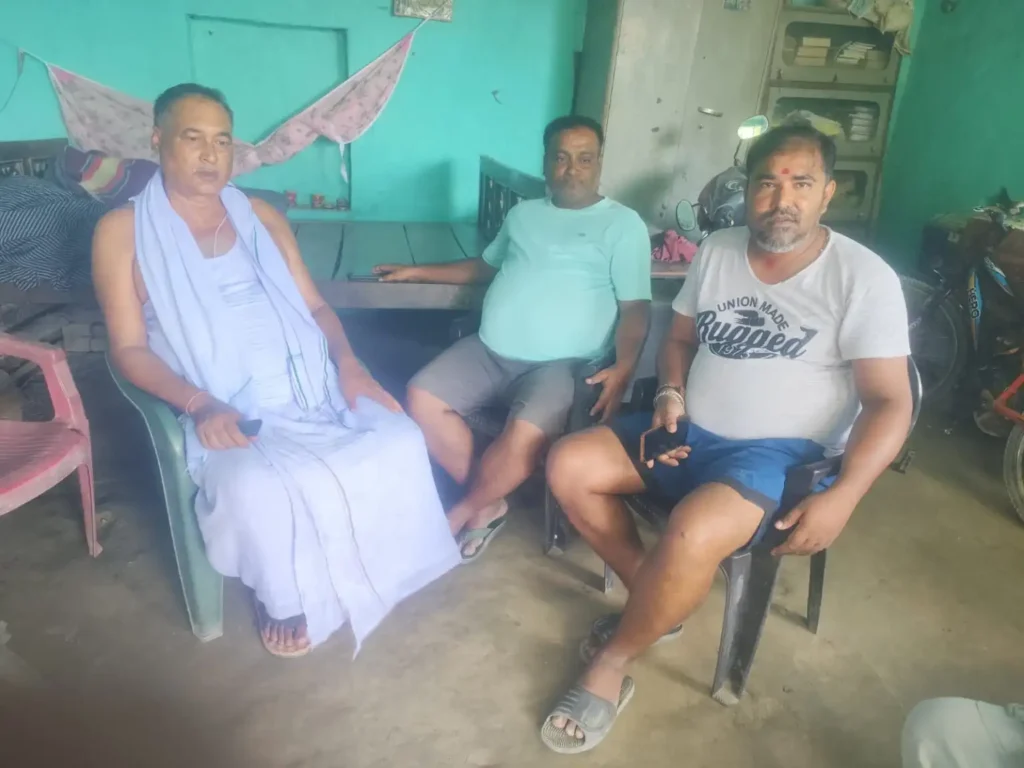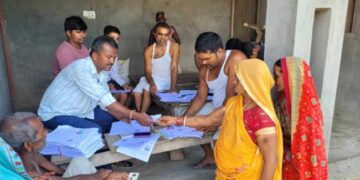Explore how Bihar’s electoral landscape is shifting as minorities and upper castes raise concerns, moving beyond the traditional focus on EBCs (Extremely Backward Classes) in political discussions.
Once dominated by upper-caste households, Saurath village in Madhubani, Bihar, has long been famous for its annual “sabha,” where Brahmin men of marriageable age would gather, dressed as grooms, hoping for wedding proposals. Today, however, the villagers’ wait is for something entirely different…
Out of the 2,200 domicile applications submitted from our panchayat alone, only 150 certificates have been issued so far,” says Vibhakar Jha, son of Saurath panchayat mukhiya Kamini Devi.
Certainly! Here’s a rewritten version of your sentence for clarity and flow:
“It is not only the poor and marginalised who are affected; in a state where caste divisions are deeply rooted, even upper-caste voters are expressing concerns over the additional documents now required for voter registration under the Special Intensive Revision of electoral rolls.”
A domicile certificate is among the easiest documents to obtain from the Election Commission’s list of 11,” says Jha. “But there is a long queue here, mostly of upper-caste people… this unnecessary revision process is troubling everyone.”
“Stop harassing us in the name of documents,” adds Chinta Devi, another resident of Saurath.
The refrain echoes across villages in the region where upper castes form the majority — this group makes up over 15 percent of the state’s population, including 4.5 percent from Muslim sub-groups such as Sheikh, Saiyad, Mughal, and Pathan.
The sense of unease mirrors the growing despair among voters on the margins — from Extremely Backward Classes (EBCs) to minority communities — as highlighted by The Indian Express in its ongoing series on the Special Intensive Revision. This sentiment cuts across regions, from Chief Minister Nitish Kumar’s stronghold in Nalanda and RJD chief Lalu Prasad’s bastion of Raghopur in Vaishali, to the Muslim-majority areas of Seemanchal.
Among Hindus in Bihar, the upper caste population includes Brahmins (3.65%), Rajputs (3.45%), Bhumihars (2.8%), and Kayasthas (0.89%). Traditionally seen as a strong support base for the NDA, this social group—once politically dominant until losing its hegemony in the 1990s—also extends its backing to parties like the RJD and Congress.
This community is spread throughout the state, with notable concentrations in Aurangabad, Rohtas, Bhojpur, Saran, Banka, Darbhanga, Madhubani, Begusarai, Muzaffarpur, Sitamarhi, and Patna. spoke to several Booth Level Officers (BLOs) in these regions, and a common estimate among them was that “around 30 per cent” of upper-caste voters in their areas have applied for domicile certificates.
Local authorities in Saurath panchayat, under Rahika block—which has a significant Brahmin population—are facing a two-fold challenge: managing the overwhelming influx of over 3,000 to 4,000 domicile applications being filed daily since last week, and persuading more than 40% of the local residents, who have recently returned from migration, to update and submit their electoral forms.

Take the example of Navtoli Magrauni, located in Ward No. 7 under the Madhubani Nagar Panchayat, just 7 km from Saurath. “Our small settlement, largely comprising Brahmins, has around 400 voters. However, nearly 50% of them currently live outside Bihar,” says Satish Chandra Mishra, husband of former Magrauni mukhiya Rekha Mishra. “Even in my own family, four members are living in Delhi. Does this mean that nearly 200 people could lose their voting rights simply because they aren’t physically present during the electoral revision?” he questions.
Here’s a rewritten version of the quote that keeps the meaning intact while making it smoother:
Rajkishore Jha, Mishra’s neighbor, says, “For people like us, earning our daily bread is more important than voting. People are leaving Bihar because there are no jobs here. This SIR has only helped photocopy shops and café owners—it’s a burden for everyone. Upper castes are suffering just as much as others.
Former Bihar Congress state secretary and senior Madhubani leader Krishnakant Jha Guddu has criticised the ongoing SIR exercise, saying it has completely disrupted the momentum of the upcoming state elections. “The NDA seems to have committed political suicide with this move. Supporters across party lines are unhappy with the voter list revision process. We receive at least 50 complaints every day, ranging from BLOs not cooperating with applicants to delays in issuing domicile certificates,” he stated.
Table of Contents
In Rajout village of Ramchua, Banka, 24-year-old homemaker Shilpi Kumari says she has “only an Aadhaar card and a ration card.” “I voted in the 2020 Assembly elections and the 2024 Lok Sabha polls. I want to vote again in the upcoming state elections this year,” she says. “But the Booth Level Officer (BLO) has been asking me to submit a domicile certificate for my application to be processed,” she adds.
Given the uncertainty, receiving the much-needed certificate is truly a reason to celebrate.
Poonam Kumari, a homemaker and cancer survivor from Madhubani, shares her joy: “It’s such a relief to finally have my domicile certificate. I have faith in the beauty of the electoral process. I remain a proud voter. Thank God for this moment of relief.
READ ALS…….COVID-19 Update: Maharashtra Reports 8 New Cases, Mumbai Accounts for 5 — No Deaths in 24 Hours















 Categories
Categories









